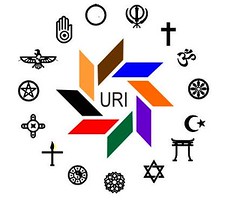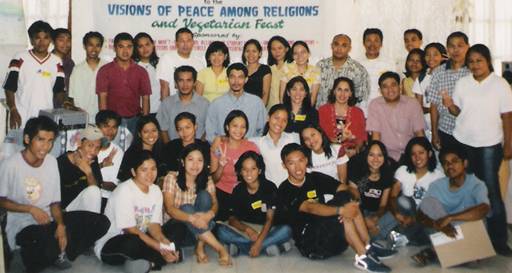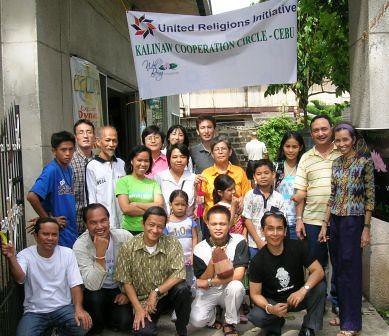 UNITARIAN UNIVERSALISM: A Progressive Faith for Today's World
UNITARIAN UNIVERSALISM: A Progressive Faith for Today's WorldThe inherent worth and dignity of every person;
Building bridges of interfaith co-operation and understanding
 UNITARIAN UNIVERSALISM: A Progressive Faith for Today's World
UNITARIAN UNIVERSALISM: A Progressive Faith for Today's World(Approved by the Standing Committee on behalf of the Global Council of
the United Religions Initiative)
As trustees of the Global Council of the United Religions Initiative, we write to urge an immediate and complete ceasefire of violence that is currently happening in the Middle East, and a commitment by all parties, including the international community and the world's religions, to find the will to complete, implement and invest in a comprehensive peace agreement that will allow current and future generations of Palestinians and Israelis to live their lives in peace.
We write as leaders of the URI, a global interfaith organization active in 70 countries, through the work of 400 member Cooperation Circles. URI's purpose is to promote enduring, daily interfaith cooperation, to end religiously motivated violence and to create cultures of peace, justice and healing for the Earth and all living beings. We have many members in the Middle East, including Palestinians, Israelis, Jordanians and Egyptians. The URI has consultative status at the UN through ECOSOC.
As leaders of an interfaith organization dedicated to resolving conflict without resorting to violence, we recognize and laud the heroic work of Palestinians, Israelis and peace advocates all over the world who are dedicated to rising above the violence and working for peace, justice and healing.
We believe that a new day is possible when a comprehensive, just peace will allow current and future generations of Palestinians and Israelis to live their lives in peace.
We call on all involved - Israelis and Palestinians, people of other nations, international bodies, religions, and grassroots groups working heroically for peace - to take the following steps to speed the dawning of that day:
* To stop the violence immediately.
* To supply immediate humanitarian aid to address urgent suffering and long-term aid to rebuild.
* To commit to negotiate, invest in and implement a comprehensive peace agreement that will allow current and future generations of Palestinians and Israelis to live their lives in peace.
* To invest in every means possible to weave a fabric of genuine, mutually honoring community among Palestinians and Israelis at the grassroots level.
* To invest less in armaments and more in social and economic infrastructure.
We commit to do all we are able, beginning with support for URI member Cooperation Circles in Israel and Palestine, and engaging our members around the world to help these steps be fulfilled.
And we commit to pray and meditate that violence will cease, peace prevail and a life of hope be restored to the long-suffering people of this region.
As a youth network we sympathise with our fellows, the young people who are caught up in the crisis, in both Gaza and in the Israeli communities that live in fear of rocket attacks. Young people are the future of any community and we feel that they should not have to live amidst a cycle of violence and hardship. In order for young people to make meaningful and healthy contributions to society, it is imperative that they grow and develop within a space of security and integrity.
We are also concerned about those who are vulnerable in these times, such as the elderly and the sick. They need access to medical resources and clean, safe environments. In times of crisis these people suffer the most because basic facilities are less accessible.
They also need to live without the fear created by constant attacks. This situation is robbing people on both sides of basic human rights that are theirs by international law.
We implore both sides to pursue the path of peace and reconciliation and reduce hostilities so that aid and supplies can reach the people of Gaza to alleviate their suffering and so the Israeli people can live without fear. It is our hope that both sides can cooperate in order to achieve a lasting peace and quality of life for all people. Our goal, as members of a global interfaith community, is to achieve this all over the world.









